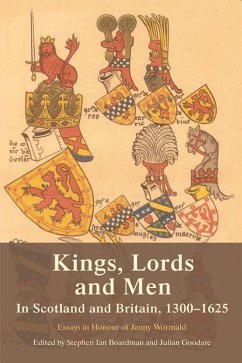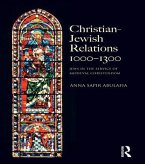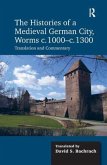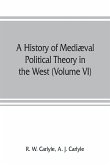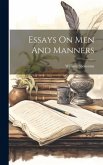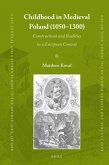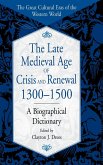'The contributions in this book from leading scholars on late medieval and early modern kingship and lordship are a most appropriate tribute to Jenny Wormald. The most important and dynamic Scottish historian of her generation on these core themes who, in her work, redefined the field.' Dauvit Broun, University of Glasgow 'Jenny Wormald has transformed our view of the role of the aristocracy in early modern Scotland, their relations with the crown, with each other, and with the community. These innovative essays by her friends and former students are variations on these themes, a splendid tribute to a very distinguished scholar.' Maurice Lee Jr., Rutgers University A volume celebrating the work of Dr Jenny Wormald and her impact on the study of late medieval and early modern Scottish and British History Inspired by Jenny Wormald's work, the contributors tackle questions including: How far can medieval themes such as 'lordship' function in the late 16th-century world of Reformation and state formation? How did the Scottish realm fit into wider British and European patterns? What did it mean for Scotland to be a 'medieval' kingdom, and when did it cease to be one? Ranging from the fourteenth to the seventeenth century the book analyses the ties that bound together pre-modern societies. New insights are offered into the reigns of, amongst others, James II, James III, Mary, Queen of Scots and James VI, while the Declaration of Arbroath is reassessed. Wormald's famously upbeat assessment of the achievements of Stewart Renaissance monarchy and the cohesion of the Scottish polity in the fifteenth and sixteenth centuries is examined in a series of chapters that develop further, amend or contest her interpretations. Steve Boardman is Reader in History, University of Edinburgh. His books include The Campbells, 1250-1500 (2005) and The Early Stewart Kings: Robert II and Robert III, 1371-1406 (1996). He is currently completing the New Edinburgh History of Scotland volume 5: The First Stewart Dynasty: Scotland, 1371-1488. Julian Goodare is Reader in History, University of Edinburgh. His books include The Government of Scotland, 1560-1625 (2004) and State and Society in Early Modern Scotland (1999). He is currently completing The European Witch-Hunt. Cover images: the Scottish coats of arms in the Armorial of Guelderland. Cover design: riverdesign.co.uk
Hinweis: Dieser Artikel kann nur an eine deutsche Lieferadresse ausgeliefert werden.
Hinweis: Dieser Artikel kann nur an eine deutsche Lieferadresse ausgeliefert werden.

